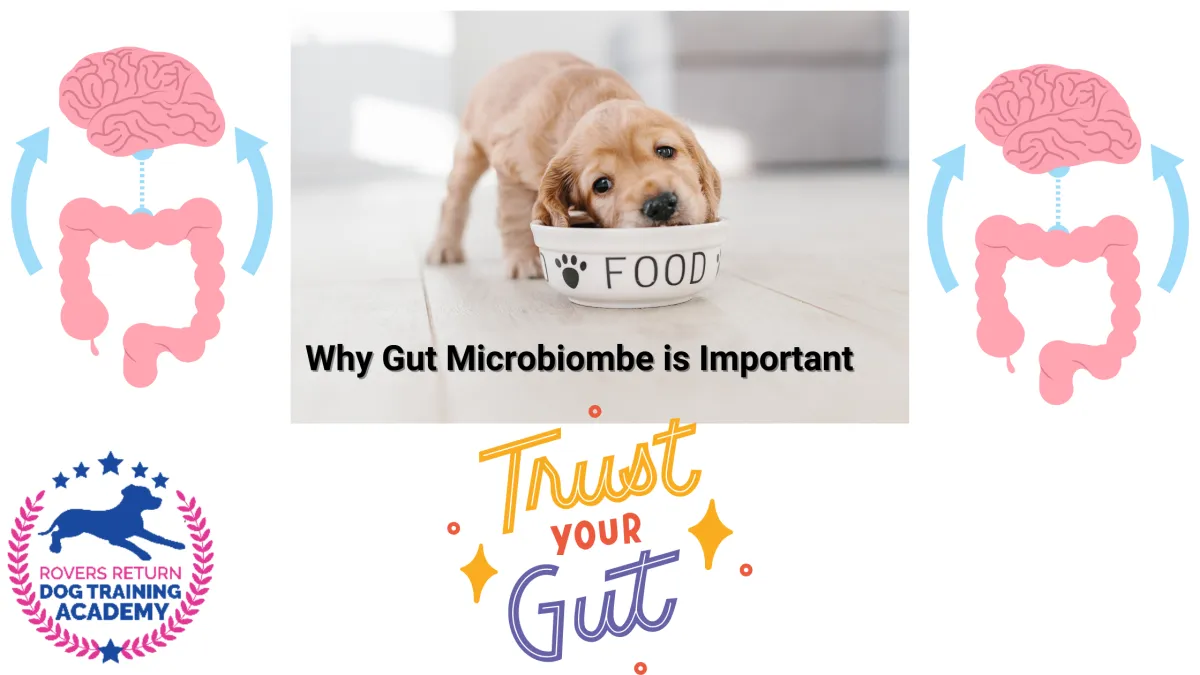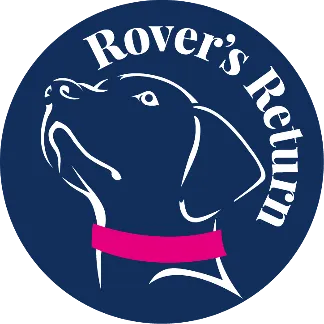Book a FREE 1:1 Assessment Call By Clicking HERE
Specialising In Dog Reactive Behviour
Accredited by APDT, ABTC and UK DOG Behaviour and Training Charter
Qualified and Experienced
Force Free Trainer and Behaviourist
Dog Training Leicestershire Educational Blogs

Why Gut Microbiombe is Linked to Your Dogs Behaviour
'The friendly bacteria in your dog’s gut microbiome produce special proteins called enzymes. These help your dog digest and use his food. If those friendly bacteria aren’t around, your dog won’t get the nutrition he needs from his meals'
https://www.dogsnaturallymagazine.com/dysbiosis-in-dogs-causes/

Why Gut Microbiome is Important When Dealing With Your Dog’s Behaviour
Improving your Gut Microbiome - A Key to a Happier You
Did you know that the trillions of tiny organisms living in your gut are called microbiomes?
Microbiomes play a significant role in health and well-being. More importantly, as this is a dog behaviour website they impact behaviour. And this is what I am discussing today.
Human and dog microbiomes are similar!
We share the same types of microbiome in the gut, but the strains of the bacteria differ. Studies have shown that humans and dogs are more similar than most other animals.
The role of microbiome in your body.
The microbiome is connected to every body system and influences everything from nutrition and digestion and metabolism in the gut, but also things outside the gut such as overall health, mood, nervous system responses, the immune system including responses to allergens and skin and coat health.
The gut has own nervous system that sends messages to the brain, and it affects emotions. It also has an impact on your dog's immune system. 90% of their immune cells reside in the gut.
90% of serotonin is stored in the gut and released through the gut-brain axis.
The vagus nerve links the gut's nervous system to the brain.
How can I improve my dogs' microbiome?
When dogs are fed processed food, bacterial toxins called lipopolysaccharides are released. These toxins kill the brain cells responsible for producing serotonin and dopamine. These neurotransmitters affect mood and behaviour.
Kibble is highly processed due to the way it is made, additives and they are usually cooked at high temperatures.
What to feed your dog is a question that I get asked all the time. As stated earlier, processed foods affect the microbiome in the gut, so it is important to feed a good diet.
A good dog food should include protein from a meat source as the first two ingredients on the list. Avoid animal derivatives (it's a broad source of meat parts) and meal (as it isn't fresh). Look for specific ingredients otherwise, they could be hiding poor ingredients.
Studies have shown that a raw diet produces the best microbiome. However, a balanced unprocessed diet will increase microbiome.
The ingredients listed on commercial dog food show the highest percentage of ingredients first. They get away with adding bulk agents by listing them individually. For instance, they can add both white rice at 15% and brown rice at 15% totalling 30% which could be more than the protein (if protein is 23% and listed 1st) content which is the first ingredient making it seem as though meat is the highest percentage ingredient, so be aware!
Foods classed as 80/20 contain 80% meat and 20% vegetables, but they have been processed (but still a better choice than most!)
Some of the big, popular brands, (including ones sold by your vet) contain additives and ingredients not conducive to gut microbiome. Always read the label and google any ingredient that you are unsure of.
Poor, processed dog food destroys the microbiome
What You Can You Do?
Boosting the gut microbiome may sound like a daunting task, but fear not! There are plenty of simple ways you can improve your dog's gut microbiome and, in turn, promote healthy behaviour.
First things first, you'll want to make sure that your dog is well-hydrated. Ensure that they always have a fresh bowl of water all the time. Not only is hydration essential to life it can help digestion.
Choose a dog food with good ingredients. whether it be raw, cooked, dehydrated, wet or dry food, it is essential to choose a decent food. And expensive doesn't equal good! Understanding the ingredients and the food label is essential. The less processed food the better with no additives with no GMF. Processed food can compromise your dog's microbiome.
Use pre and probiotics to promote great harmony for your dog's gut health.https://www.dogsnaturallymagazine.com/5-steps-to-restore-gut-health/
You can buy these in powder form, but you can add natural foods such as kefir, broccoli, banana, sweet potato, sauerkraut and kombucha (in moderation) daily to their food. https://www.dogsnaturallymagazine.com/probiotics-how-to-waste-money-on-your-dog/
prebiotics are also important - lion main, garlic, mushrooms, burdock root, dandelion greens, and Chaga.Lifestyle choices play a key role in shaping your gut microbiome and behaviour. If you're constantly stressed or lack sleep, your gut buddies can suffer too. Stress hormones can disrupt the delicate balance in your gut, leading to some not-so-happy behaviour.
So take some time to train your dog to build confidence and give them space away from stressful situations.Add fibre through vegetables and fruit and ones that are natural pre and probiotics!
Test for parasites
Minimise stress and increase calmness
In conclusion gut microbiome is like your very own superhero saving all of your body. By improving your gut health through a good, fibre-rich diet, reducing sugar (also added to processed foods), incorporating probiotics, and managing stress, you can harness the power of your gut to enhance your well-being. So, why wait? Start making small changes today and get ready to embrace a happier you!
Dog Training Leicestershire.
Samantha Hughes
Association of Pet Dog Trainers MAPDT 01528
Animal and Behaviour Training Council
ISPC Level 6 advanced canine behaviour
Highly Qualified Behaviourist
Accredited by APDT, ABTC and UK DOG Behaviour and Training Charter
Accredited Scentwork Instructor
Force Free Trainer and Behaviour
Force Free Trainer and Behaviour
Accredited Scentwork Instructor
Accredited by APDT, ABTC and UK DOG Behaviour and Training Charter
Highly Qualified Behaviourist
Contact Us
Sam: 07725 802995
You can contact us via Live Chat button at the bottom of the screen or the contact box to the right.
You can also book one of our services online using the View Dates buttons under the service you require.
© 2023 by Rovers Return Dog Trainers Academy - Force Free Dog Training Lutterworth, Broughton Astley, Leicestershire, Hinckley, Nuneaton, Stoney Stanton, South Kilworth, Ullesthorpe
Privacy Policy | Terms and Conditions | Terms and Conditions of Services | Sitemap


Facebook
Instagram
X
LinkedIn
Youtube
TikTok